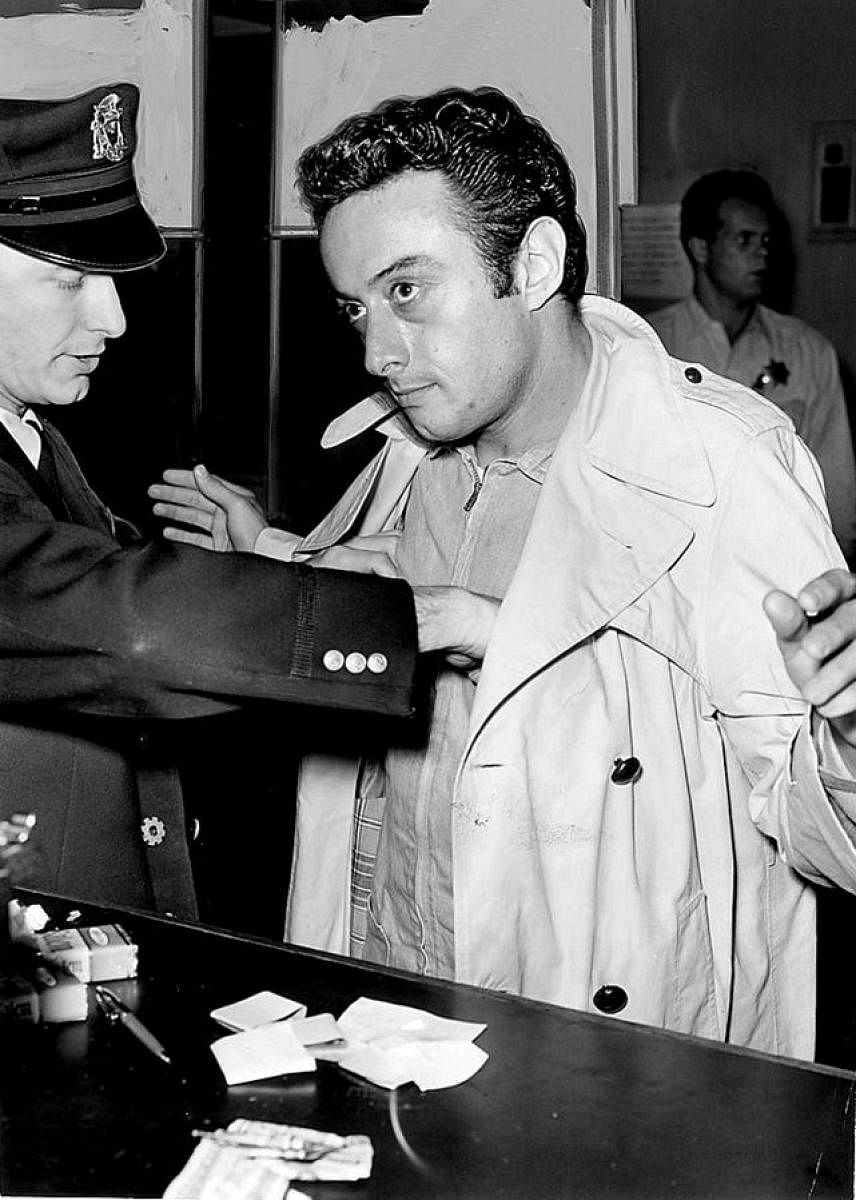

Munawar Faruqui, a 28-year-old comedian from Junagarh, Gujarat, was arrested in Indore for a performance on New Year’s Day for joking about Hindu deities.
Going by the video, it is clear Faruqui was not even allowed to start the show. He is seen politely debating with an unidentified man, clarifying how he satirises all communities, religious stereotypes and social mores, including his own. He says his job is only to make people laugh. “I would never want to hurt someone’s religion or beliefs with my jokes,” he says.
Faruqui had apologised last year for joking about the lyrics of ‘Mera piya ghar aaya’, a Madhuri Dixit number from 'Yaraana' (1995). He was doxxed and his sister and mother received rape threats as a consequence. A video of the gig shows him riffing on Madhuri’s declamations about her paramour’s return, and Sita’s suspicions about Madhuri. The second contentious ‘joke’ was about how he mistook images of mob violence for a movie involving Amit Shah and the RSS.
On January 1, Eklavya Singh Gaur, son of Indore BJP MLA Malini Gaur, and his associates from the Hind Rakshak Sangathan halted the Faruqui show before it began. Though Gaur filed a complaint, police inspector Kamlesh Sharma was quoted as saying there was no evidence he had insulted Hindu deities or Amit Shah.
Looking deeper into Faruqui’s oeuvre, the firebrand comic often talks about coming of age during the 2002 Gujarat pogrom. In another video titled ‘Nawab, Nehru and Gujarat 2002’ on YouTube, he jokes about the extreme laziness of the people of his hometown, and the erstwhile Nawab of Junagarh who apparently organised the wedding of two dogs, among other things.
In a hilarious riff on the history of the erstwhile princely state which almost acceded to Pakistan, he segues into a phone call between Sardar Patel and Nehru.
“Listen, did you see The Times of India?” Patel asks. Nehru replies, “Yeah, it came for approval three-four days ago.” Patel says, ‘No, no, this is on the front page, it’s in the news. We have to set up a meeting with Mountbatten, and we have to figure out this issue.” The punchline comes when Nehru says, “Yes, one minute, he’s sleeping here only, I’m giving [the phone] to him.”
In the same video, Faruqui describes the terror of his father and uncles trying to protect the family during the 2002 pogrom — he himself is happy about his school being shut.
“Comedy is fuelled by oppression, by the lack of power… by sadness and disappointment. By abandonment and humiliation. Now, who the hell does that describe more than women!”, says the protagonist of the multiple-award-winning television series 'The Marvelous Mrs Maisel'.
One could easily replace “women” here with any other marginalised group. This is the same place that Munawar Faruqui’s comedy comes from. The outrage against him is reminiscent of another famous comedian from America, Lenny Bruce.
The Jewish comic and legendary iconoclast had a famous joke: “If Jesus had been killed 20 years ago, Catholic school children would be wearing little electric chairs around their necks instead of crosses.”
During his short but trailblazing career in the 1960s, Bruce often ran afoul of the law for using taboo words referring to body parts and sex acts. He finally stood trial in 1964, and despite positive testimonies from the likes of Bob Dylan, Allen Ginsberg, James Baldwin and the respected journalist and active Catholic Dorothy Kilgallen, was found guilty of ‘obscenity’.
The prosecutor had demanded from Kilgallen her reaction to the “dirty words” from Bruce’s act, and she coolly replied, “They are words, Mr Kuh. Words, words, words.”
Even as Bruce kept appealing the case, his drug abuse got worse, and he was eventually found dead of an overdose in 1966.
Bruce is now considered the pioneer of modern stand-up comedy. He took aim at “America’s most sacred cows — from organised religion to moralistic attitudes toward sex and drugs” and always, without fail, made people laugh.
He mentored legends such as George Carlin and Richard Pryor, who extended his legacy of skewering middle-class morality, racism and capitalism, and who inspired generations of comics working or hoping to make it into comedy even today.
Faruqui’s case again highlights the age-old clash between comedy and power. In his quirky and hilarious routines, Faruqui radiates our collective experience of Indian society and politics. He uses only his words, to prod, to make us think and laugh, unlike the violent mobs attacking minorities and dissidents.